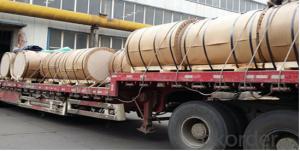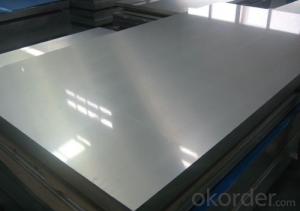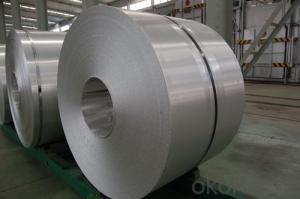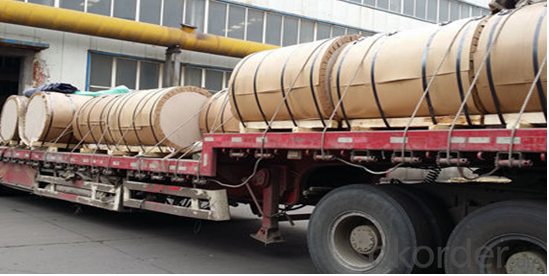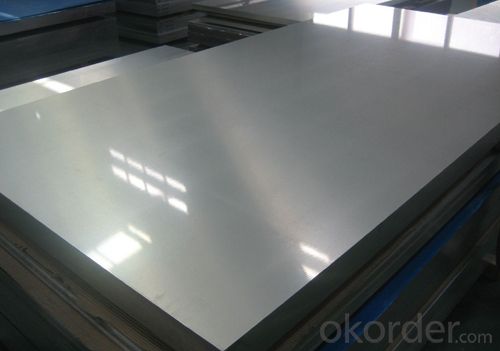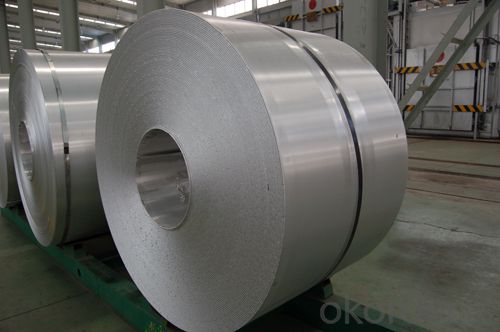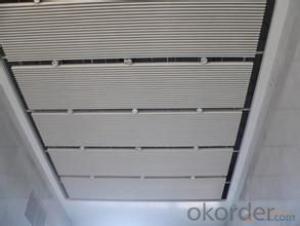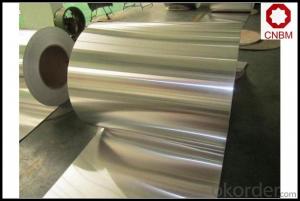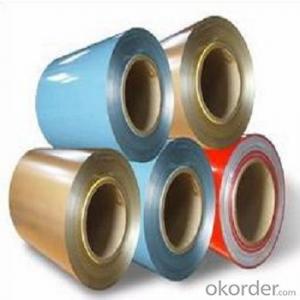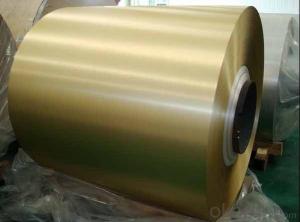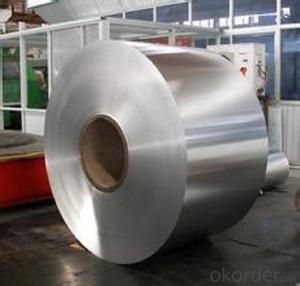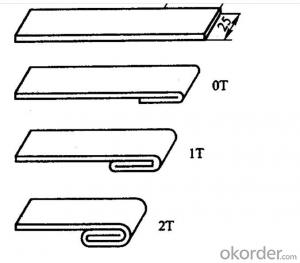Aluminum Roofing Coil Prices for Different Applications in Different Alloys
- Loading Port:
- Shanghai
- Payment Terms:
- TT OR LC
- Min Order Qty:
- 20 m.t
- Supply Capability:
- 10000 m.t/month
OKorder Service Pledge
OKorder Financial Service
You Might Also Like
Specification
1. Specification of Aluminum
1) Alloy | 1050, 1060,1100, 3003 3004 3105 3005 5005 5052 etc |
2) Temper | O/H12/H14/H1/H18/H32/H34/H36/H38//H111/H112/H116/H321/T6/T651/T3/T351 etc |
3) Thickness | 0.1mm to 6mm |
4) Width | 20mm to 3300mm |
5) Coil weight | 100kgs to 6 tons depends on actual requirement |
6) Core material | Aluminum alloy |
7) Coil Inner diameter | 76mm, 152mm,or as required |
2. Application of Aluminum
(1).Interior: wall cladding, ceilings, bathrooms, kitchens and balconies, shutters, doors...
(2).Exterior: renovations...
(3).Advertisement: display , signboards, fascia, shop fronts...
3. Feature of Aluminum
In 1954, there were 75 registered aluminum alloys. Today, there are more than 530 registered active compositions and that number continues to grow. That underscores how versatile and ubiquitous aluminum has become in our modern world. So what are aluminum alloys and why are they important?
4. Certificate:
SGS and ROHS(if client request, paid by client), MTC(plant provided), Certificate of Origin(FORM A, FORM E, CO), Bureau Veritas and SGS (if client request, paid by client), CIQS certificate
5. Image of Aluminum
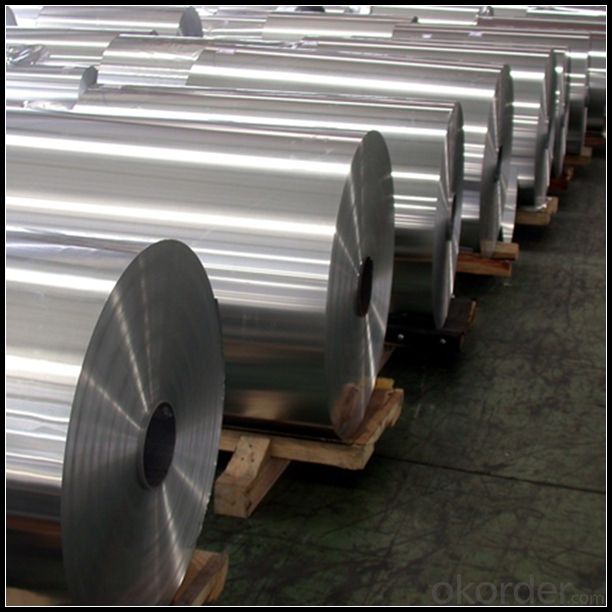
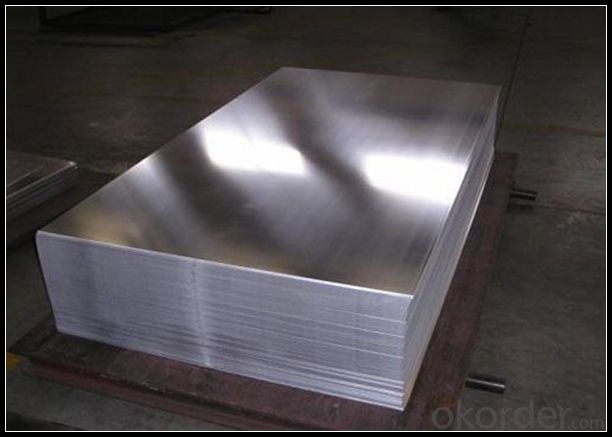
6. FAQ
Q: What is the produce prase? | ||||
A: Normally it would be 40days after received your deposit. | ||||
Q: Can you provide free samples? | ||||
A: Yes, free samples will be sent to you on freight at destination. | ||||
Q: Can I get your latest catalogue? | ||||
A: Yes, it will be sent to you in no time. | ||||
Q: What is the MOQ? | ||||
A: 3 tons | ||||
Q: What are your payment terms? | ||||
A: We accept L/C, D/A, D/P, T/T, West Union,etc. |
- Q: What is the price range of aluminum coils?
- The price range of aluminum coils can vary greatly depending on factors such as the grade and thickness of the aluminum, quantity purchased, and current market conditions. Typically, aluminum coils can range from $1 to $5 per pound.
- Q: What are the rules and regulations regarding the use of aluminum coil in commercial kitchen settings?
- <p>Yes, there are regulations on the use of aluminum coil in commercial kitchens. These regulations often relate to food safety, hygiene, and the material's suitability for contact with food. Aluminum is generally safe for food contact, but it must meet specific standards to ensure it does not leach harmful substances into food. Regulations may vary by country or region, with some areas having strict guidelines on the types of aluminum alloys allowed and their intended use. Compliance with these regulations is crucial to avoid health risks and legal penalties. It's important for commercial kitchens to use food-grade aluminum and to follow local health department guidelines.</p>
- Q: What are the different coil edge profiles available for aluminum coils?
- There are several different coil edge profiles available for aluminum coils. Some of the most common ones include: 1. Slit edge: This is the most basic type of edge profile, where the coil is simply slit to the desired width. The edges of the coil are typically sharp and can be prone to burrs or roughness. 2. Deburred edge: In this profile, the edges of the coil are deburred to remove any sharp or rough edges. Deburring helps to improve safety and prevents damage to downstream equipment during processing. 3. Rounded edge: This profile features rounded edges, which are achieved by rolling or machining the edges of the coil. Rounded edges are often preferred in applications where safety is paramount or where the coil will be subjected to frequent handling. 4. Beveled edge: Beveled edge profiles are created by cutting or grinding the edges of the coil at an angle. This profile is commonly used in applications where two coils need to be joined together, as the beveled edges allow for a smoother and more secure connection. 5. Custom edge profiles: Depending on the specific requirements of the application, custom edge profiles can be developed. These profiles are tailored to meet the unique needs of the customer and may involve a combination of different edge treatments. It is important to note that the choice of coil edge profile depends on the intended application, processing requirements, and desired aesthetic appearance. Manufacturers and suppliers of aluminum coils often offer a range of edge profiles to meet various customer needs.
- Q: This question asks for methods to assess the quality of aluminum coils.
- <p>To determine the quality of aluminum coils, consider several factors: purity and alloy composition, which affects strength and corrosion resistance; surface condition, checking for scratches, dents, or impurities that can affect performance; mechanical properties like tensile strength and elongation; and dimensional accuracy, including thickness, width, and straightness. Conduct tests such as hardness tests, tensile tests, and corrosion resistance tests. Visual inspection and using measuring tools for dimensional checks are also crucial. Compliance with industry standards and certifications from recognized bodies can also indicate quality.</p>
- Q: Is it possible to use aluminum coils in the construction of a solar charger or battery pack?
- <p>While aluminum coils can be used in various electrical applications due to their conductivity, they are not typically used in solar chargers or battery packs. Solar chargers and battery packs usually require materials with higher conductivity and specific properties for efficient energy transfer and storage. Copper is more commonly used for wiring in these devices due to its superior conductivity compared to aluminum. Aluminum may not provide the necessary efficiency and could lead to energy loss. For the best performance in solar chargers and battery packs, it's recommended to use materials specifically designed for these applications, such as high-quality copper wiring and appropriate battery cells.</p>
- Q: Are there any safety considerations when handling aluminum coils?
- Yes, there are safety considerations when handling aluminum coils. Aluminum coils can be sharp and have the potential to cause cuts or punctures if not handled carefully. Additionally, aluminum dust or fumes generated during handling or cutting processes can pose health hazards if inhaled. It is important to wear appropriate personal protective equipment, such as gloves and safety glasses, and to work in a well-ventilated area to minimize the risk of injury or exposure to harmful substances.
- Q: This question asks for a comparison of the benefits and drawbacks associated with the use of aluminum coil in various applications.
- <p>The advantages of using aluminum coil include its lightweight nature, which reduces transportation costs and enhances energy efficiency. It also has excellent thermal conductivity, making it ideal for heat exchangers and cooking utensils. Aluminum coil is corrosion-resistant, which extends its lifespan and reduces maintenance. It is also recyclable, contributing to sustainability. Disadvantages include lower strength compared to steel, which may limit its use in heavy-duty applications. It also has a higher cost than some other metals, which can affect its competitiveness in certain markets. Additionally, aluminum is a good conductor of electricity, which can be a disadvantage in applications where electrical insulation is required.</p>
- Q: I am writing a science-fiction story, and I am planning on making Aluminum this ultra-valuable element (Which adds irony - Aluminum is the third most abundant element on Earth!) Even if ol' atomic no. 13 is as common throughout the universe as it is on Earth, I can bring up 'multiverse' to get away with it. I think it'd still be nice to know.
- Interesting, the aluminum must flow? Aluminum is not as common as other elements. It is not readily produced in the cores of stars through the alpha-capture process (which produces things like carbon, oxygen, neon, magnesium, silicon, etc.). This means it is only produced via supernova explosions. The table in Wikipedia (see link below) will give you an idea of the relative abundance to other elements. (Notice that magnesium and silicon, which are before and after aluminum, are nearly 100 times more abundant). As a fellow, Sci-Fi enthusiast, I'd remind you to make you're story believable. If you decide that your universe won't have supernovae, remember that would mean there would be no iron, gold, uranium, etc. My answer has been long enough, but I'm sure you have an idea why aluminum is so abundant on the Earth's crust so I'll stop here.
- Q: Can aluminum coils be used for electrical applications?
- Yes, aluminum coils can be used for electrical applications. Aluminum is a widely used material in the electrical industry due to its excellent conductivity, lightweight properties, and corrosion resistance. Aluminum coils are commonly used in various electrical applications such as transformers, motors, generators, and coils for inductors and solenoids. They offer advantages such as high thermal conductivity and low eddy current losses, making them efficient in transferring and distributing electrical power. Additionally, aluminum coils are cost-effective compared to copper coils, making them a preferred choice for many electrical applications. However, it is important to note that aluminum has a lower electrical conductivity compared to copper, so the coil design and dimensions may need to be adjusted accordingly to ensure optimal performance.
- Q: Can aluminum coils be used in high-humidity environments?
- Indeed, high-humidity environments can accommodate the use of aluminum coils. Due to its corrosion-resistant nature, aluminum proves to be a fitting material for areas with elevated humidity levels. The formation of a natural oxide layer on the aluminum surface acts as a safeguard against moisture, effectively warding off rust and corrosion. Hence, aluminum coils are widely favored for HVAC systems, as they encounter regular exposure to moisture and humidity. Moreover, the lightweight, durable, and exceptional heat transfer properties of aluminum coils render them an optimum selection for a multitude of industrial and commercial applications in high-humidity settings.
Send your message to us
Aluminum Roofing Coil Prices for Different Applications in Different Alloys
- Loading Port:
- Shanghai
- Payment Terms:
- TT OR LC
- Min Order Qty:
- 20 m.t
- Supply Capability:
- 10000 m.t/month
OKorder Service Pledge
OKorder Financial Service
Similar products
Hot products
Hot Searches
Related keywords
